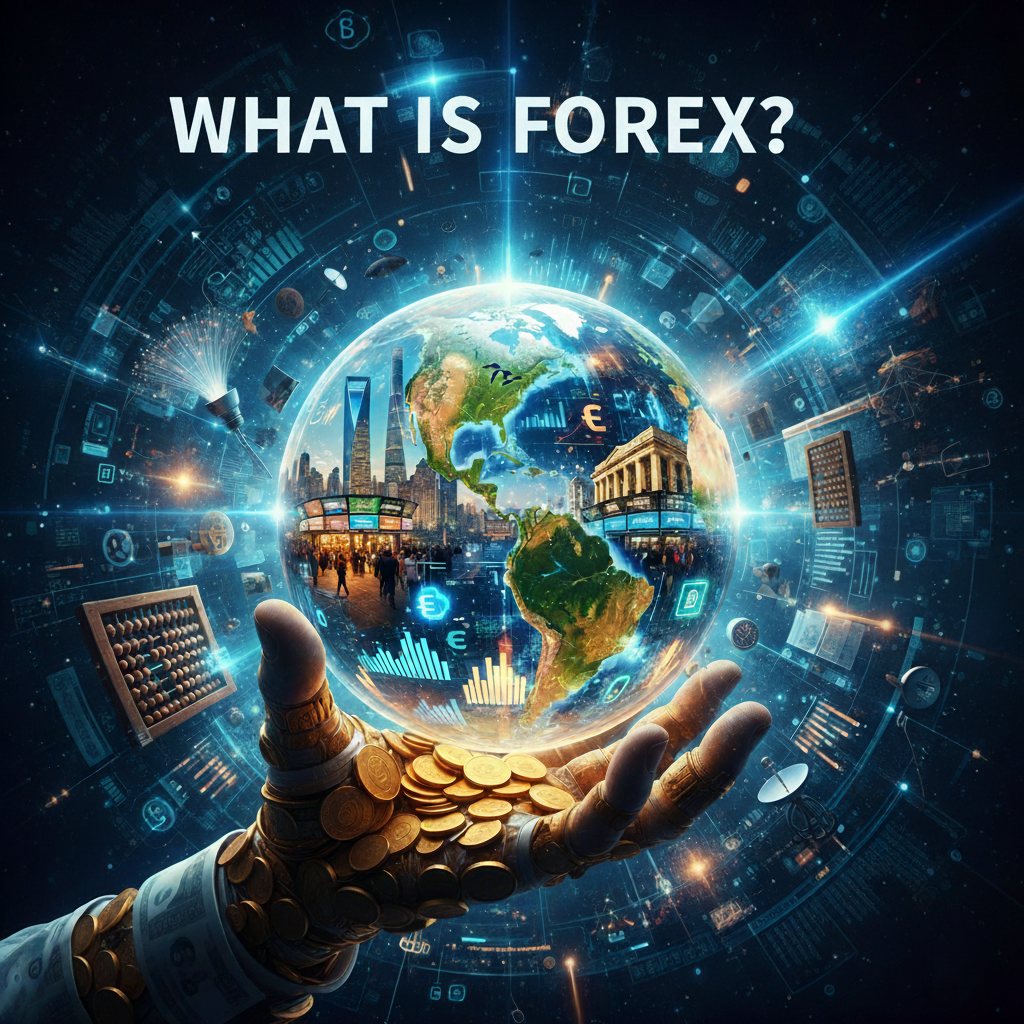Start with a travel story
- When you exchange money at the airport, you’re already participating in forex—trading one currency (e.g., USD) for another (e.g., JPY).
- When you change your leftover yen back before flying home, you’ll often find the rate has moved. That price movement is exactly where profits and losses come from in forex.
What is Forex (FX)?
- The foreign exchange market—Forex/FX—is the global marketplace for buying and selling currencies.
- It operates nearly 24 hours a day on weekdays, spanning major financial centers around the world.
Why is forex considered “huge”?
- Forex is the largest financial market on earth: about $5 trillion in daily turnover (vs. roughly $74 billion on the NYSE).
- Note: that $5T reflects the entire FX market. In spot FX, retail participation is around $1.49 trillion.
Bottom line: it’s massive, but retail is only one slice of the whole.
Three takeaways
- Exchanging money = forex: Any swap of one currency for another is, at its core, an FX trade.
- Volatility = opportunity: Exchange rates move constantly—this creates opportunities and risk.
- Big, but layered: The wholesale (bank/institutional) market is the largest; retail is a smaller subset.
Wrap-up (What’s next?)
- Now you know what forex is, why P&L happens, and how big the market is.
- Next lesson: What exactly do we trade in FX? (currency pairs, quotes, pips & spreads, and buy/sell mechanics)
